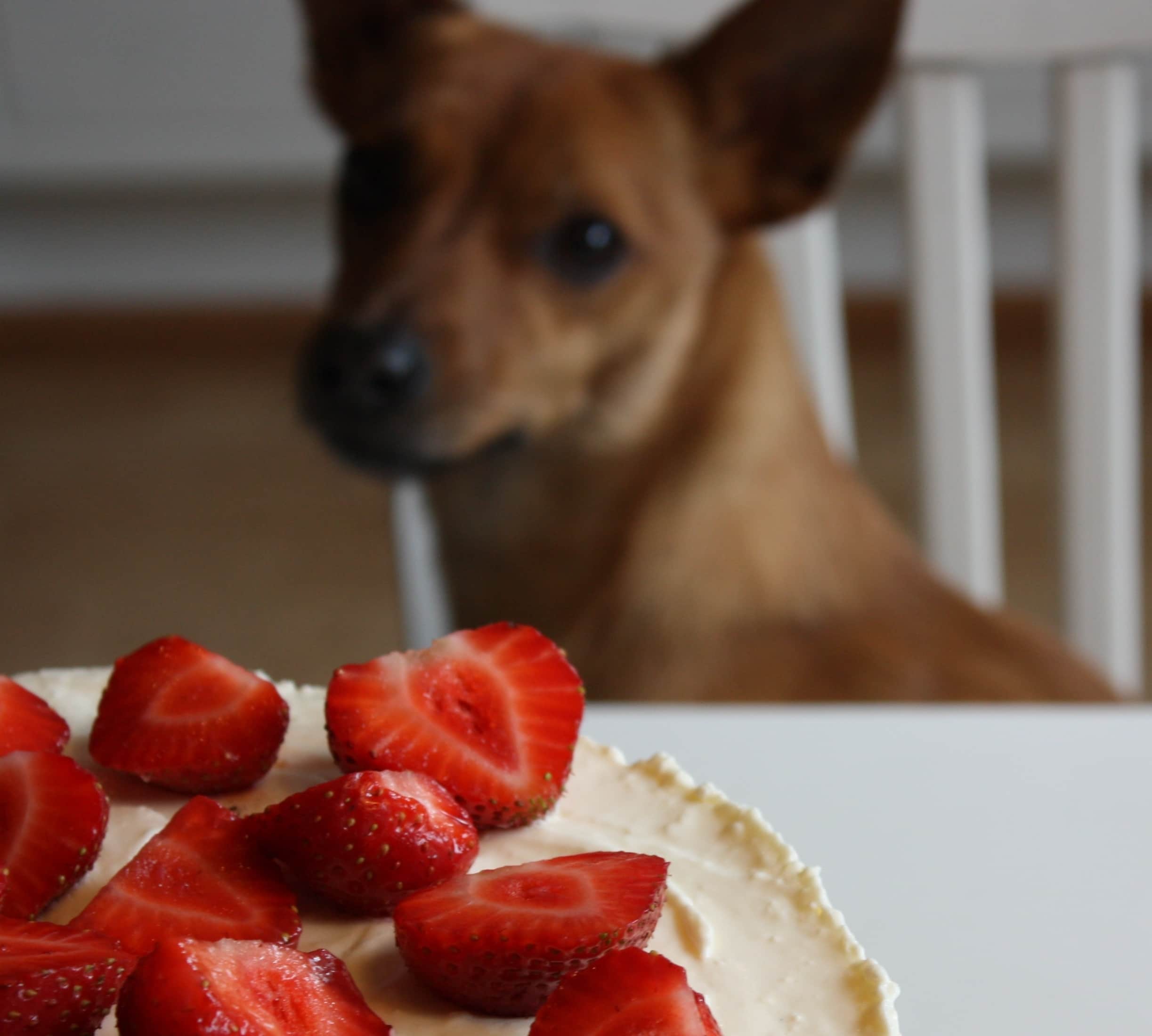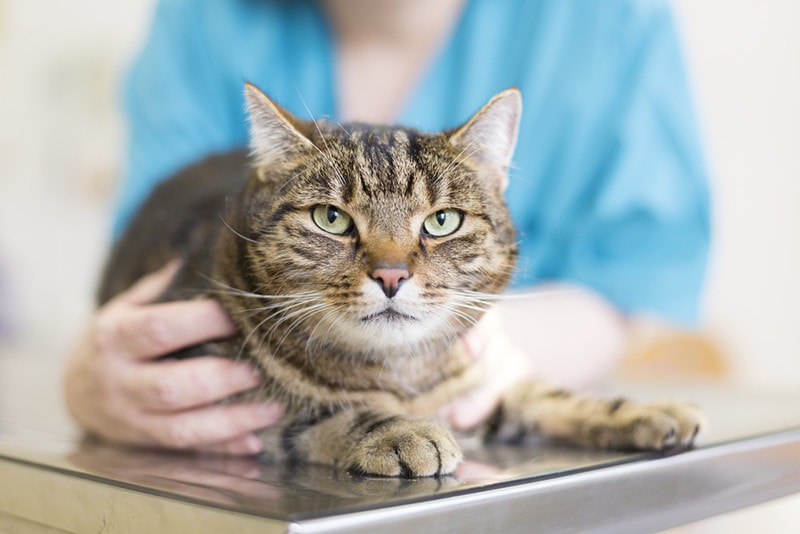Can Dogs Eat Ghee? Health Concerns Explained (Vet Answer)
Updated on

If you’re familiar with Indian food, you’ve probably heard of ghee, a type of clarified butter.
While ghee isn’t toxic to dogs, it’s potentially harmful and offers no benefits. Therefore, we firmly believe that dogs can’t eat ghee. A taste here or there isn’t going to pose much of a problem, but read on to learn the whole story.
Why Can’t Dogs Eat Ghee?
Ghee is very similar to clarified butter, but it contains fewer dairy proteins (e.g., casein) and less lactose than butter. While ghee and clarified butter are basically the same thing: melted butter with solids removed, making ghee requires a secondary browning that burns off all the water and milk solids. The result is an extra-super-clarified butter that’s almost nothing but fat.
One tablespoon (14g) of ghee contains approximately:
| Nutrient | Amount per 14g serving | Function in the body |
| Protein | 0.039g | Growth and regeneration of tissues |
| Total lipids (fat) | 13.9g | Provision of energy, absorption of fat-soluble vitamins, and incorporation into cellular membranes. |
| Calcium | 0.56mg | Formation of bones and teeth; blood coagulation; nerve impulse transmission; muscle contraction |
| Phosphorous | 0.42mg | Skeletal structure; DNA and RNA structure; energy metabolism; locomotion; |
| Vitamin A RAE | 118µg | Vision, growth, immune function |
| Vitamin K | 1.2µg | Activation of clotting factors, bone proteins, and other proteins |
| Vitamin E | 0.392mg | Anti-oxidant |
Fat is needed by every living creature, but ghee is extremely high in fat with nothing else to benefit. Foods with a high fat content can cause health issues in some dogs, including gastroenteritis and pancreatitis.
A small amount of ghee is unlikely to cause any harm to the majority of dogs but it also won’t do them any good. If you have a dog with a sensitive tummy or one that is predisposed to getting pancreatitis—a dog with a previous history or an at-risk breed such a Schnauzer—it is absolutely not recommended to give them any ghee at all.
The other nutrients in ghee are beneficial to your dog, but they can be obtained in higher amounts from more healthy food options. For example, sweet potatoes are high in vitamin A and a much healthier option for your pup than ghee.
Health Concerns Related To High Fat Foods
- Gastroenteritis: Dogs with sensitive stomachs may react badly to any amount of ghee. Signs of gastro-enteritis include vomiting, loose stools/diarrhea, a painful abdomen and a lack of appetite.
- Pancreatitis: This is the inflammation of the pancreas which can be brought on by a high-fat meal, especially in susceptible breeds such as the Schnauzer. Signs of pancreatitis are varied. They include lack of appetite, vomiting, a painful abdomen, lethargy and occasionally diarrhea. Pancreatitis can be mild or it can be very severe and life threatening.
If your dog is showing any of the above symptoms, it is best to take them to the vet. If you know your dog has eaten something with a high fat content, make sure you mention this to your vet. If you know your dog has managed to consume a large amount of highly fatty food such as ghee, it is best to call or visit your vet for advice as soon as possible.
How Much Ghee Should You Feed Your Dog?
We wouldn’t recommend feeding any ghee to your dog, but if he takes a single lick, it is unlikely to cause an issue. However, the more ghee your pup eats, the more likely health complications will crop up, so it’s best to avoid it completely.
Healthy Treat Options for Dogs
We’ve explained why ghee is not a good addition to your dog’s diet. So, if you’re looking for something you can feed your dog as a regular treat, we’ve got five great options for you here:
Green Beans and Peas
Green beans and peas are a great treat you can give your dog just about whenever you want. You can feed them fresh or frozen peas.

Watermelon
Watermelon is a great healthy treat for your dog. Because of the higher water content in watermelon, it’s delicious, nutritious, and hydrating for your dog. Don’t feed your pup the rind or seeds, though.
Strawberries
Strawberries are super sweet, and some dogs love the taste of them. Because of the high sugar content, you shouldn’t feed them to your dog very often or in great quantities. Before feeding your dog strawberries, remove the stems and thoroughly wash them.

Carrots
Carrots are another veggie you can feed to your dog, either cooked or raw. If you’re feeding your dog raw carrots, ensure you always chop them up so they don’t turn into a choking hazard. Either way, don’t add additional seasonings.
Final Thoughts
Now that you know a little more about feeding your dog ghee, it hopefully will be easier to avoid giving it to them. They don’t need the high fat content, and the additional nutrition in ghee is available in much higher doses in other foods. Giving your pup ghee could cause illnesses such as gastro-enteritis or pancreatitis, both of which can be serious conditions. It is a much better option to stick to a well balanced, nutritious diet, with the occasional dog-friendly treat or two.
Featured Image Credit: etorres, Shutterstock











